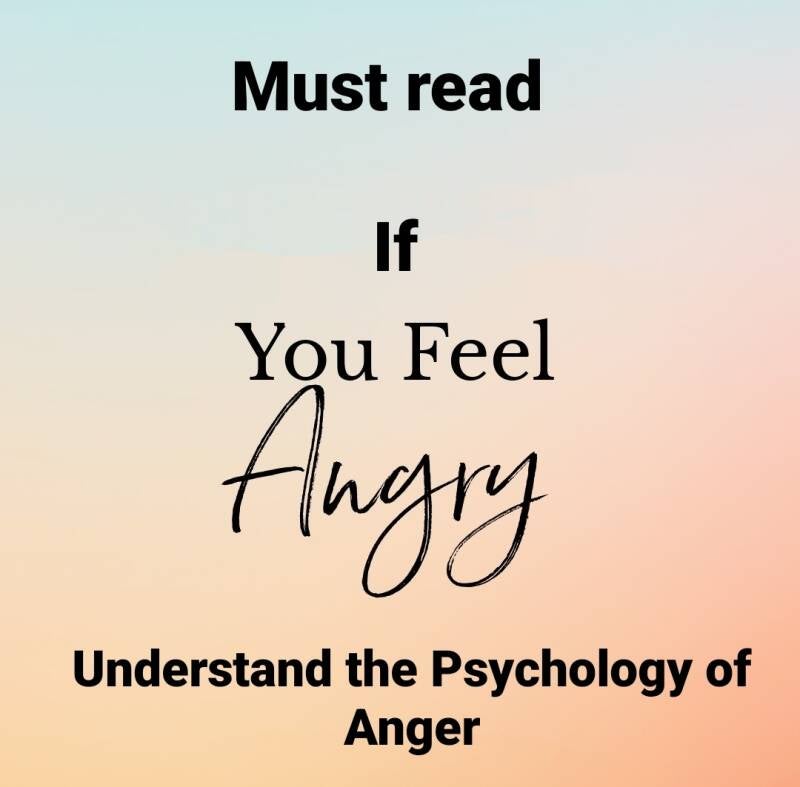
Are you tired of not being able to control your emotions? Do you become so angry that you have trouble thinking clearly? Have you caused more harm than good by wrongfully and unjustly venting out your anger toward others? If you are a slave to your emotions and looking for a surefire plan to manage your anger, then this article can help you:
Anger is often a reaction to and distraction from inner suffering—feelings such as sadness, powerlessness, shame, anxiety, inadequacy, and isolation
Anger frequently serves as a protective shield, masking deeper vulnerabilities. These underlying feelings may include hurt from rejection or loss or fear stemming from threats to one's well-being or security.
Studies have identified anger as being a secondary emotion. A secondary emotion is an emotion fueled by other emotions. For example, if you become hurt in some way, you might express this negative emotion instead of emotional and physical pain – it might be easier to express anger than express hurt. Hurt can make you feel vulnerable, and when you feel helpless, you might feel as if you need to protect yourself. When you are angry, you might feel under attack or frustrated. Masking your feelings of sadness, hurt or grief with anger can be easier than experiencing the primary emotion.
Coming to terms with primary emotions can be challenging to manage. Emotions like grief, sadness, loss, embarrassment and uncertainty are all hard to feel. Because anger is easier to feel, it can distract you from experiencing and healing the pain you feel inside. Among the most triggering primary emotions is frustration. Frustration is often experienced when you are feeling helpless or out of control. Over time, this emotion can cause your mood to stew until reaching an angry state. When anger happens, you might respond to your frustration in ways that feel good at the moment but are likely not healthy. You might lash out at others while trying to regain control.
Anger feels like a more empowered form of suffering than sadness, which is why we can stay stuck in it for so long. It also turns our attention outward instead of inward, creating another buffer against the underlying pain.
When you're angry, your energy is directed toward the other person and what they did to you. When you're sad, you're energy is directed toward your internal experience and the impact they had on you.
This is why moving past anger can be so hard. It requires you to bring your attention closer to yourself and feel the hurt under the rage.
Of course, you may need to move through many cycles of anger before you're ready to soften into sadness. That's okay. Give space for your timeline.
And also remember, we're not moving past anger so we can just wallow in our sadness (although we may need some space for that, too).
The point is to meet the sadness/hurt/betrayal from the grounded, compassionate, and loving part of you so that we can facilitate healing and release.
Unfortunately, it just so happens we can't get to that healing and release through anger. So that's why we have to feel the sadness.
When you find yourself in the moment, you might worry about how you will respond. Finding the source of your anger through therapy, mindfulness and meditation will not only help you identify the underlying cause but learn ways to manage it at the moment. Start by asking yourself what is triggering you and why? When you understand how and why you feel and react in specific ways, you can manage your emotions from being elevated to the next level. Mindfulness helps prevent anger from overpowering you by decreasing anger’s influence over your thoughts, emotions and behaviors. Meditating and practicing self-care like yoga, taking a bath or hobbies can turn negative energy into a positive energy output.
"I know this hurts. Let's just surf the waves of the pain together. Every time we feel ourself want to tighten back into anger, we're just going to soften again. It's hard, but you've got this. Remember, you are not the sadness. It's just an experience moving through you. Continue to breathe, feel your connection to your heart, and trust that you are growing into a stronger, more loving version of yourself because of this."
To explore more, contact me, let’s talk.
Joe Turan
- Life Coach
- Tantra & Kuscheltherapeut
00436643884305
www.joeturan.com
Sources :
-cory muscara
-https://www.newhoperanch.com/
-https://www.psychologytoday.com/


Kommentar hinzufügen
Kommentare